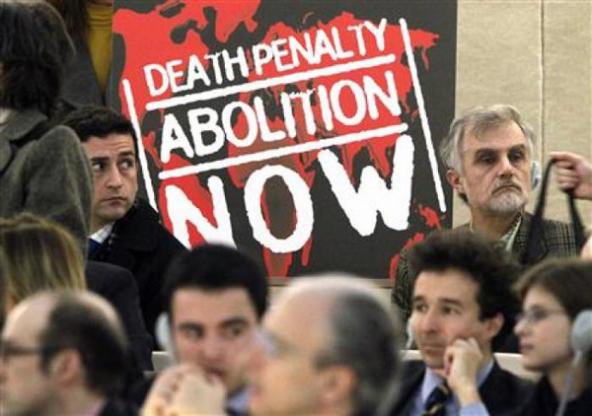Mental illness and the death penalty: a painful intersection
Advocacy
Murder Victims’ Families for Human Rights (MVFHR) and the National Alliance on Mental Illness (NAMI) have joined forces to draw attention to the intersection between the death penalty and mental illness from the victims’ perspective.
They describe the project as a contribution to the broader campaign that seeks to end executions of mentally ill offenders through litigation and legislation.
Although the Supreme Court ruled in the 2002 Atkins v. Virginia case that the execution of “mentally retarded” people is unconstitutional, the enforcement of that decision is still challenged. Earl Berry (photo) was executed in Mississippi on May 21, 2008 after his lawyers filed evidence that he suffered from mental retardation too late.
Moreover, the Atkins v. Virginia ruling does not extend to defendants who suffer from a mental illness that does not translate into mental retardation. For example, Troy Kunkle was executed in Texas in 2005 although he suffered from schizophrenia.
Several legal and medical organisations, including the American Bar Association, have passed resolutions against the execution of the mentally ill. Yet it is still legal in the US.
“A profound injustice”
MVFHR and NAMI argue that persons suffering from mental illness should be treated, not executed. Both groups say they intend to prevent the conditions that lead to criminal violence and raise public awareness about the effect of sentencing mentally ill offenders to death.
According to a statement by NAMI Executive Director Michael Fitzpatrick, the death penalty for mentally ill offenders represents “a profound injustice … at the most painful intersection of the mental healthcare and criminal justice systems in America.”
MVFHR and NAMI are planning a gathering of family members of victims killed by persons suffering from mental illness and family members of mentally ill offenders who have been executed. The gathering, which will be the first of its kind, will take place in Texas in August 2008, and will include a facilitated private meeting among the families and a public ceremony and press conference.
Interviews with 20 to 30 such families will form the basis for a report to be released at NAMI’s July 2009 conference in San Francisco. The report will include policy recommendations and other useful information.
How to help?
The project’s promoters are currently seeking to contact relatives of murder victims, or families of people who suffered from severe mental illness and were executed, who disagree with the use of the death penalty in the case of their loved ones.
They are looking for individuals or organisations who could refer them to families fitting those criteria. The project also needs financial support to bring those families together in Texas this summer.
World Coalition member MVFHR is a US national organisation of relatives of homicide victims and relatives of people who have been executed, all of whom oppose the death penalty in all cases. NAMI is the nation’s largest grassroots organisation for people with mental illness and their families.




